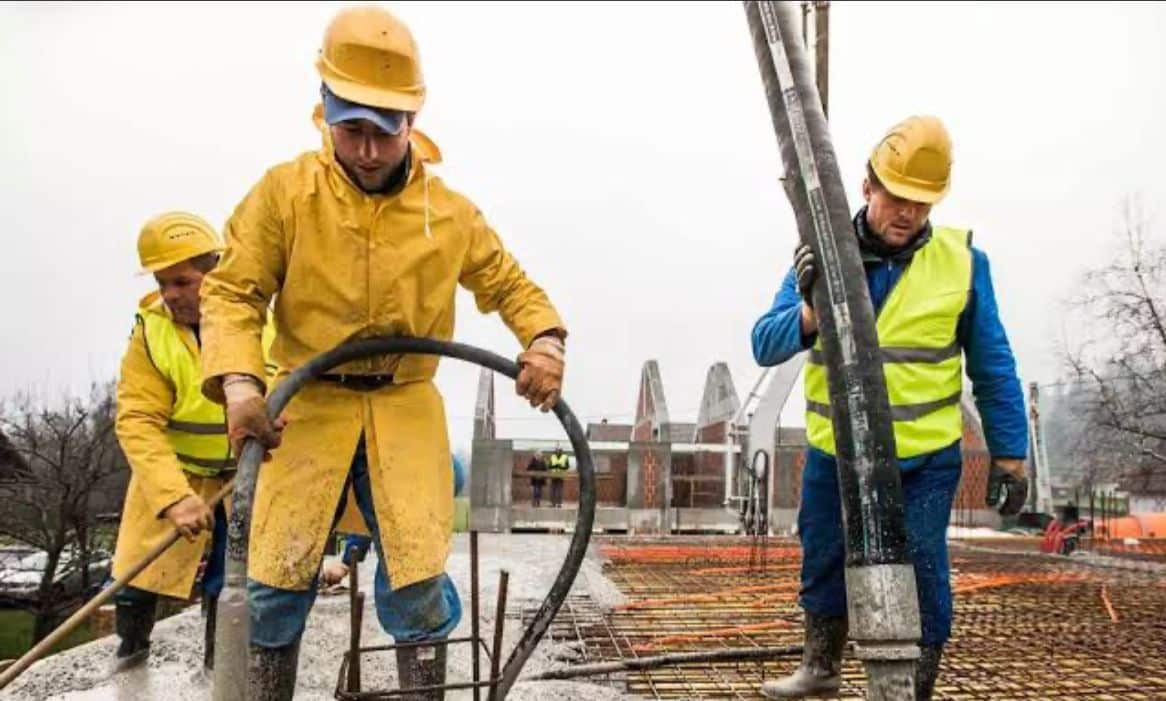Discover the Construction Industry in Germany: Job Opportunities Await
Germany is known for its strong construction industry, which plays a crucial role in the country’s economy. With major infrastructure projects and a growing demand for new residential and commercial buildings, there are plenty of opportunities for professionals in the construction sector.
Job Titles in the Construction Industry in Germany
1. Bauingenieur (Civil Engineer): Civil engineers play a key role in designing, planning, and overseeing construction projects. They work closely with architects and construction teams to ensure that projects are completed successfully.
2. Bauleiter (Construction Manager): Construction managers are responsible for overseeing all aspects of a construction project, from planning and budgeting to managing contractors and ensuring compliance with regulations.
3. Architekt (Architect): Architects design buildings and structures, taking into account aesthetics, functionality, and safety requirements. They work closely with clients to bring their visions to life.
4. Handwerker (Craftsman): Craftsmen are skilled workers who specialize in specific trades such as carpentry, plumbing, or electrical work. They play a vital role in the construction process by carrying out essential tasks on site.
5. Bautechniker (Construction Technician): Construction technicians provide technical support to engineers and architects, assisting with project planning, surveying, and quality control.
In addition to these common job titles, there are many other roles within the construction industry in Germany, ranging from laborers and machine operators to project managers and sustainability experts. As the sector continues to grow, opportunities for skilled professionals are expected to increase.
Education for Construction Industry Jobs in Germany
In order to work in the construction industry in Germany, individuals typically need a vocational education or apprenticeship in a related field. Some common pathways include completing a carpentry, plumbing, electrical, or masonry apprenticeship program. These programs often combine on-the-job training with classroom instruction, providing students with both practical skills and theoretical knowledge.
For those interested in pursuing higher education in construction-related fields, there are also opportunities to study at technical universities or colleges that offer programs in civil engineering, architecture, or construction management.
Where to Study: Some reputable institutions in Germany where one can study construction-related fields include Technical University of Munich, RWTH Aachen University, and Karlsruhe Institute of Technology.
Educational Difficulty Score: 7 out of 10
Reason for Difficulty Score: The education required for jobs in the construction industry in Germany can be challenging due to the rigorous nature of vocational training programs and the technical knowledge needed for roles such as civil engineers or architects. Additionally, proficiency in the German language is often required for many programs and job opportunities in this field.
Salary Range in the Construction Industry in Germany
Jobs in the construction industry in Germany typically fall into a salary range of €30,000 to €80,000 per year. This range can vary depending on factors such as experience, location, and specific job role.
Some examples of salaries in the construction industry include:
- Construction Manager: The average salary for a Construction Manager in Germany is around €55,000 per year.
- Site Engineer: Site Engineers can earn between €40,000 and €60,000 annually, depending on their level of experience.
- Civil Engineer: Civil Engineers in Germany typically earn salaries ranging from €45,000 to €70,000 per year.
Salary Score: 7 out of 10
The construction industry in Germany offers competitive salaries compared to other industries. With an average salary range of €30,000 to €80,000 per year and opportunities for growth and advancement within the field, it is a lucrative sector for professionals looking to build a successful career. However, there are higher-paying industries in Germany such as finance and technology which offer salaries exceeding those found in the construction industry. Therefore, a score of 7 out of 10 is given based on the relative competitiveness of salaries within the German job market.
Construction Jobs in Germany
Germany is a thriving hub for construction jobs, offering opportunities for skilled workers in various sectors of the industry.
Top 3 countries with similar job industries:
- United States: Known for its large-scale construction projects and demand for skilled labor.
- Australia: Booming construction industry with high demand for skilled workers.
- Canada: Strong construction sector offering diverse job opportunities.
The Construction Job Industry in Germany
The construction industry in Germany is a thriving sector that offers various job opportunities for skilled professionals. From building residential homes to constructing commercial buildings and infrastructure projects, there is a high demand for individuals with expertise in construction.
Responsibilities
Professionals in the construction industry are responsible for overseeing and coordinating building projects from start to finish. This includes planning, budgeting, scheduling, managing resources, and ensuring compliance with safety regulations. They work closely with architects, engineers, subcontractors, and other stakeholders to deliver high-quality construction projects.
Requirements
Individuals looking to pursue a career in the construction industry in Germany should have a strong understanding of construction principles and techniques. They must possess excellent problem-solving skills, attention to detail, and the ability to work well under pressure. Additionally, good communication and leadership skills are essential for effectively managing teams on site.
Qualifications
While formal education is not always required for entry-level positions in the construction industry, many employers prefer candidates with vocational training or a degree in civil engineering or a related field. Certifications in specific areas such as project management or safety regulations can also enhance job prospects.
In conclusion, the construction industry in Germany offers rewarding career opportunities for individuals with a passion for building and creating. By honing their skills and staying up-to-date on industry trends, professionals can thrive in this dynamic and fast-paced sector.

